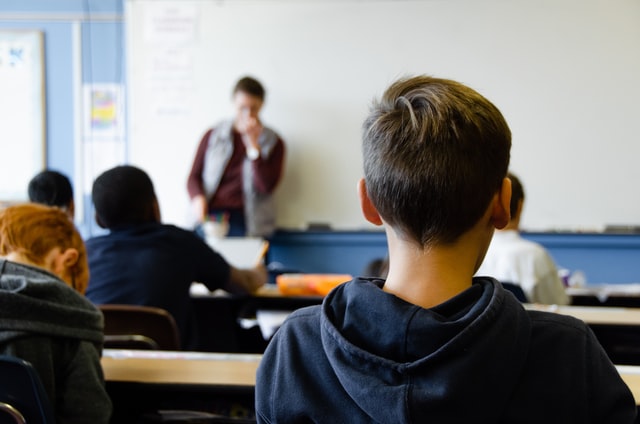Part one: Preparing for the 2021 BESA Curriculum Conference
While major curriculum changes take years to implement, education professionals know that even small shifts in assessment, current debate, or the words of ministers can markedly impact classroom teaching. In part two of this series, we’ll continue the conversation following the 2021 BESA Curriculum Conference, reflecting on what we learned. Sign up to get part two direct to your inbox after the conference.
Covid-19 and the curriculum: Adapting assessments and embracing EdTech
The key topics
The focus will be on education recovery, 2022 assessments, mental health and the buzzwords ‘the new normal’.
The effect of Covid-19 on learning will naturally be a central topic at BESA’s conference this year. The focus will be on education recovery, 2022 assessments, mental health and the curious, and slightly sinister, buzzwords ‘the new normal’.
The pandemic necessitated various temporary changes to the formal structure of the curriculum. Most notably, adaptations to assessments aimed at mitigating three problems faced by students and teachers under these circumstances:
- Restrictions on aspects of the curriculum, such as fieldwork in Geography and performances in Music, Drama and Dance.
- Restrictions on teaching time, making it necessary to ease content demands so that teachers could feasibly prepare students for assessment.
- Disruption to learning and the resulting need to ease pressure on students.
2022 assessments
In 2022, some GCSE exams will offer a choice of topics or provide students with extra supplementary materials. Students will also receive advance warning in most GCSEs and A levels about which content areas will come up in the exams. It is highly likely that these changes will be scrapped as soon as pandemic disruption comes to an end since they appear contrary to the move towards increased academic rigour witnessed since Michael Gove’s reforms in 2014.
Remote learning and EdTech
Remote learning catalysed a surge in EdTech usage, which is likely to mark a permanent shift in the way we educate and bring exciting new opportunities for learners.
Alongside the introduction of temporary formal measures, we experienced a dramatic change in the way we approach teaching and learning on a day-to-day basis. Remote learning catalysed a surge in EdTech usage, which is likely to mark a permanent shift in the way we educate and bring exciting new opportunities for learners.
We’ve seen promising suggestions that EdTech can benefit SEN students and can facilitate more dynamic engagement with learning materials. The rise of EdTech also allows school education to coincide more seamlessly with home lifestyles and technologies such as social media, apps and online games. Writing for Education Technology magazine, Brad Tombling believes this alignment will be crucial in getting through to the next generation of learners.
The ‘new normal’?
As Simon Lock recently wrote in Tes, Professor Sugata Mitra takes a bold stance on online education, suggesting that it has given us glimpses of a beneficial student-guided approach to study, and has even illustrated the potential in initiating a complete overhaul of the way we assess learning.
Despite these benefits, the increased use of technology in the classroom is nevertheless controversial. We look to the BESA Curriculum Conference to explore how EdTech may shape the curriculum of the future. Sign up to get our key takeaways after the conference.
The future of the curriculum: Cultural concerns and climate change awareness
Aside from these stark pandemic-related shifts in education, how might the curriculum develop? Many hope that, after his achievements as Vaccines Minister, new Education Secretary, Nadhim Zahawi, will bring the same efficiency and organisation to his education policy. We also hope to see Zahawi champion children from disadvantaged backgrounds, and unlock “that great untapped resource” of “talent and potential [that] exist[s] in all corners of our country”.
While Zahawi settles into his new role, these key issues are likely to have a lasting impact and will be important discussion points at BESA’s conference.
Diversity in the curriculum
As petitions and debates push for a more culturally diverse curriculum, will future changes recognise this widespread ambition?
As petitions and debates push for a more culturally diverse curriculum, will future changes recognise this widespread ambition? Mayor of London, Sadiq Khan, called on the government for action in late 2020, urging for more BAME figures to be studied in schools. However, prominent opinions still vary, with Ofsted’s Amanda Spielman arguing that the curriculum has many purposes besides improving representation.
While the DfE have not released any plans to address this issue through formal curriculum review, Minister for School Standards, Robin Walker, announced last month that the government is developing a non-statutory ‘model history curriculum’ which will exemplify how Black history can be incorporated into lessons in a “meaningful, rather than tokenistic” way. It is debatable whether this approach goes far enough and whether it risks leaving the fate of children’s cultural education in the hands of their individual teachers.
Diversity is the theme for the upcoming 2022 National Primary English Conference, reflecting the continued concern of education professionals on this matter.
Climate change education
In 2013, the first draft of Gove’s reformed curriculum received complaints highlighting its failure to mention climate change
In 2013, the first draft of Gove’s reformed curriculum received complaints highlighting its failure to mention climate change, as well as its lack of global history, suggesting that there was already a desire for more teaching on both these topics.
In the context of the climate crisis, Tim Oates, who chaired the 2014 education reforms, has been working on a new Natural History GCSE with environmentalist Mary Colwell. This course has a draft syllabus and is waiting for approval from the DfE. The course aims to reconnect young people with nature and, if approved, it could be taught from 2023 at the earliest.
In his speech at COP26, Nadhim Zahawi announced his plans to create a ‘model science curriculum’ by 2023 which will support teachers ‘to deliver world-leading climate change education’, mirroring the government’s approach to diversity in education.
The 2021 BESA Curriculum Conference: What we want to know
We will be looking to the 2021 BESA Curriculum Conference this month for views on the government’s education recovery plan and on how EdTech can best support all types of learners during the pandemic and beyond. Not forgetting print resources, we will be considering the role of textbooks and other print resources in a blended learning environment.
We’re also keen to hear about strategies for bringing diversity and climate change awareness to the classroom and will be questioning the impact of the DfE’s new non-statutory model curricula. Sign up to get our key takeaways.
Further reading ahead of the conference:
- Online Tutoring: How technology is allowing pupils to keep learning
- CfEY interview part 1: Looking back to look forward
- CfEY interview part 2: The future of education and technology
- Will emergency funding help close the attainment gap?
… to get our education content direct to your inbox every month.
The landscape of education is ever-changing. At Oriel Square, we use our market and policy expertise to deliver high-quality strategy, research and publishing throughout education.

